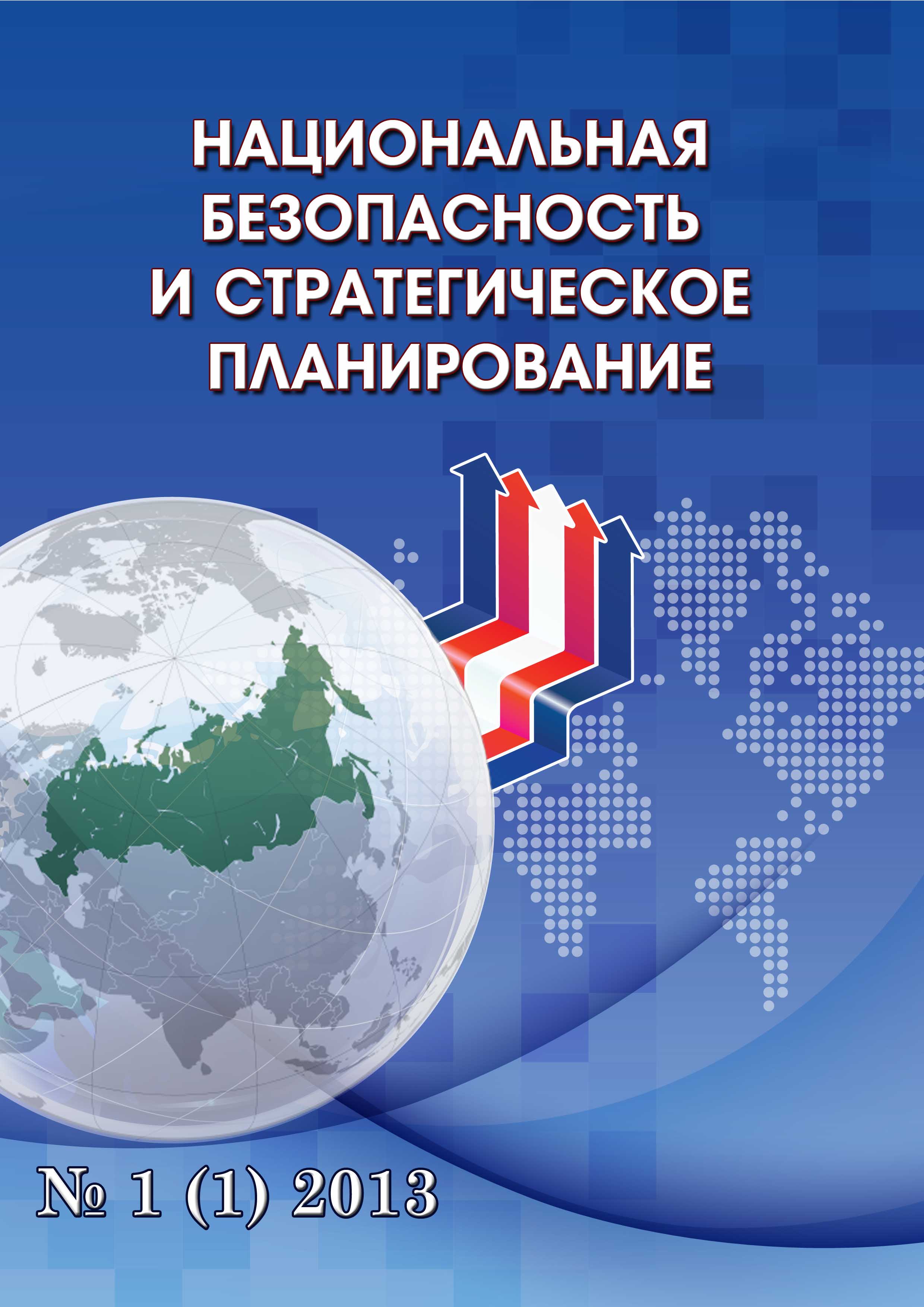Russian Federation
The article analyses the current geopolitical situation, considers the process of global governance and the role of various actors in the international arena. The conclusion about the failure of the liberal model of global governance is formulated. The principles of the organisation of financial and economic activities based on the ‘Washington Consensus’ are analysed. The necessity of transformation of the change of the old liberal model of global governance is shown. Considerable attention is paid to the concept of hybrid warfare against Russia as a tool for the implementation of global policy, as well as to the analysis of structures and methods of information influence on public consciousness. A special place is given to the discussion of Russia's role in changing the established global system and its opposition to the liberal model of world politics. Historical prerequisites of the Special Military Operation, scenarios of global confrontation, as well as possible consequences for Russia and the world system are considered. Reveals the mechanism of functioning of the ‘world behind the scenes’ and the influence of elite groups on world politics, analyses Western concepts of information warfare and their implementation through international structures. The bourgeois-liberal project of globalisation and the role of Ukraine in this project is analysed. The role of Russia in the elimination of the liberal-market economic model that gave rise to liberal ideology is defined. The article predicts the processes in the Russian Federation of public understanding of the viciousness of the liberal-market economy and the need for personnel purification from the followers of liberal reforms. The article offers a systematic approach to understanding globalisation, transformation of economic and political processes, and forecasts possible scenarios for the formation of a new world order.
governance, globalization, special military operation, world order, transformation of global politics, “world behind the scenes”, hybrid war, “new world order”
1. Matveev A.V., Maksimov A.V. Theoretical foundations of modelling the security of socio-economic systems // Natural and technogenic risks (physical, mathematical and applied aspects). - 2014. - № 4(12). - p. 46-53. - EDN WKVHJZ.
2. Ternovaya L.O. Chronopolitics: peculiarities of the flow of time in international relations. - Moscow: International edition ‘Ethnosocium and interethnic culture’, 2015. - 216 p. - ISBN 978-5-904336-75-2. - EDN VMVELZ.
3. Elliott A. Contemporary social theory: An introduction. - Routledge, 2021. - DOIhttps://doi.org/10.4324/9781003228387
4. Matveev A.V., Matveev V.V. Model of global governance // Geopolitics and Security. - 2014. - № 4(28). - P. 14-18. - EDN XWNGKZ.
5. Dushenko K.V. ‘Mirova zakulisa’: origins of the concept / Russia in global politics. - 2022. - T. 20, № 4(116). - P.178-186. - DOIhttps://doi.org/10.31278/1810-6439-2022-20-4-178-186. - EDN OCUFYE.
6. On the situation in the country and prospects [Electronic resource]. - Access mode: https://www.vodaspb.ru/index.php?dn=down&to=open&id=591
7. Tikhanychev O. V. Hybrid wars: a new word in the military art or a well-forgotten old one? // Security Issues. - 2020. - № 1. - P. 30-43. - DOIhttps://doi.org/10.25136/2409-7543.2020.1.30256. - EDN JFAPXZ.
8. Shipitsin Yu.B., Shipitsina A.Yu. ‘Hybrid’ war: Modelling of information fields. - Ekaterinburg: Ural University Publishing House, 2018. - 136 p. - ISBN 978-5-7996-2431-6. - EDN XVOCQP.
9. Panarin I.N. Fundamentals of the theory of ‘Hybrid War’ // International Cooperation of Eurasian States: Politics, Economics, Law. - 2019. - № 4. - p. 58-71. - EDN YRVNOT
10. Matveeva A. M. Hybrid wars and colour revolutions in the geopolitics of postmodernity // Locus: people, society, cultures, meanings. - 2019. - № 4. - P. 96-111. - EDN LYRHQE
11. Matveev V. V. State and prospects of global confrontation // ‘Cold War’ and modernity: Proceedings of the International Scientific Conference, St. Petersburg, 24 March 2016. - St. Petersburg: Russian State Hydrometeorological University, 2016. - P. 39-52. - EDN XDNZWX.
12. Mutsenek V.E. From a ‘think tank’ to a ‘competence centre’: diversity of forms and impacts // National Security and Strategic Planning. - 2022. - № 4(40). - P. 65-74. - DOIhttps://doi.org/10.37468/2307-1400-2023-2022-4-65-74. - EDN PYBWEW.
13. Romachev R.V. The role of ‘thought factories’ in the system of information confrontation of the USA // Bulletin of Moscow State Regional University. - 2023. - № 2. - DOIhttps://doi.org/10.18384/2224-0209-2023-2-1231. - EDN GOFCPX.
14. Urrutia O. The role of think tanks in the definition and application of defence policies and strategies // Revista del Instituto Español de Estudios Estratégicos. - 2013. - V. 2. - No 2013. - P. 1-33. URL: http://agora.edu.es/descarga/articulo/4537281/2.pdf
15. Romachev, R. V. Proxy intelligence and classification of intelligence actors on the example of the United States // Voprosy politologii. - 2022. - v. 12, № 12(88). - P. 4392-4406. - DOIhttps://doi.org/10.35775/PSI.2022.88.12.032. - EDN ODUHKV.
16. Sushkova, Y. N. Games of the world backstage: views of the jurist P. S. Romashkin // History and Modern Worldview. - 2022. - v. 4, № 2. - p. 85-94. - EDN VWNYAY.
17. Mikhailov Y.G., Lyubimov A.P. Deep State - ‘Deep State’ and modern world backstage // Diplomatic Bulletin. Law, Economics, Politics. - 2024. - № 2(25). - p. 26-33. - DOIhttps://doi.org/10.54449/76585_2024_2_25_26. - EDN TMSQZM.
18. Babaev K.V. The whole ‘Indo-Pacific’ army: the system of military-political alliances of the USA in the Indian and Pacific Oceans // Contours of global transformations: politics, economics, law. - 2023. - v. 16, № 1. - p. 107-127. - DOIhttps://doi.org/10.31249/kgt/2023.01.06. - EDN NZFOTW.
19. Coleman J. Committee 300. - Hijjaz Records Publishing, 2015.
20. John Coleman. The hierarchy of conspirators. The Committee of 300. - M.: ‘Ancient and Modern’, 2011.
21. Clausewitz C. Carl von Clausewitz: On war. - Oxford: Oxford University Press, 2007. - pp. 350. ISBN 9780199540020
22. Williamson J. A short history of the Washington Consensus // Law & Bus. Rev. Am. - 2009. - V. 15. - P. 7.
23. Noman A. Scoring the millennium goals: economic growth versus the Washington consensus // Journal of International Affairs. - 2005. - No 2. - P. 233-244. URL: http://www.jstor.org/stable/24358275
24. Williamson J. The Washington Consensus as policy prescription for development // Development challenges in the 1990s: leading policymakers speak from experience. - 2004. - P. 31-33.
25. Velichko M.V., Efimov V.A., Zaznobin V.M. Economics of Innovative Development: Managerial Foundations of Economic Theory: Monograph. - 2nd edition, corrected and revised. - Moscow: Conceptual, 2017. - 584 p. - EDN YRBYTT.
26. Markov S. ‘Hybrid war’ against Russia. - Moscow: Algorithm, 2015. - 200 p. - ISBN 978-5-906798-35-0
27. Morozov Y.V. Hybrid war of the USA against Russia and China // Strategic triangle of the USA-China-RF: challenges and prospects of Russia's security. - Moscow: Institute of China and Modern Asia RAS, 2022. - p. 260-277. - EDN HMKMEU.
28. Ivashov L. Geopolitical Drama of Russia. Will Russia Survive in the XXI Century? - Moscow: Argumenty Nedeli, 2021. - 528 c. - ISBN 978-5-6046510-4-9
29. Bosholov S.S. Challenges and threats to the foundations of the constitutional order and Russian statehood: political-legal and criminological aspects // All-Russian criminological journal. - 2023. - v. 17, № 2. - p. 109-121. - DOIhttps://doi.org/10.17150/2500-4255.2023.17(2).109-121. - EDN ENCEEK.
30. Milosevic Z. Russia, Ukraine and New Khazaria: geopolitical aspect // Russia and Slavic peoples in XIX-XXI centuries: Collection of articles. Materials of the international scientific conference, Novozybkov, 02 March 2019. Part 1. - Bryansk: Limited Liability Company ‘Publishing House “Avers”, 2019. - p. 168-178. - EDN EDFSKS.
31. Biden Says Weakened Russia Will Bend to U.S. [Electronic resource]. - Access mode: https://www.wsj.com/articles/SB124848246032580581
32. Richard Moore. Russia as a Developing Nation [Electronic resource]. - Access mode: https://geopoliticalfutures.com/russia-as-a-developing-nation/
33. ‘Does not inspire optimism": Kremlin psychic Ratnikov before his death predicted the future of Russia Nation [Electronic resource]. - Access mode: https://gazeta.a42.ru/lenta/news/129590-optimizma-ne-vnusaet-kremlyovskii-ekstrasens-ratnikov-pered-smertyu
34. Fraser T. G. A Crisis of Leadership: Weizmann and the Zionist Reactions to the Peel Commission's Proposals, 1937-8 //Journal of Contemporary History. - 1988. - V. 23. - No 4. - P. 657-680. - DOI https://doi.org/10.1177/002200948802300408
35. Winston Churchill on the rights of a dog in the hay [Electronic resource]. - Access mode: https://ami-moy.narod.ru/A522/pages/A522-044.html
36. Matveev V.V. Scenario modelling of global governance processes // National Security and Strategic Planning. - 2016. - № 2-2(14). - p. 136-150. - EDN WCJGKZ.
37. Divan D., Sharma S. Energy in the Twenty-First Century: Projections from 2000 Are Totally Wrong! // ENERGY 2040: Aligning Innovation, Economics and Decarbonisation. - Cham: Springer Nature Switzerland, 2024. - P. 55-70. - DOI https://doi.org/10.1007/978-3-031-49417-8_3
38. Radtke J., David M. How Germany is phasing out lignite: insights from the Coal Commission and local communities // Energy, Sustainability and Society. - 2024. - V. 14. - No 1. - P. 7. - DOI https://doi.org/10.1186/s13705-023-00434-z
39. Matveev V.V. Vector of Social Development or Vector of Social Degradation. Project of creation of cybernetic transhumanity in the New World Order // National Security and Strategic Planning. - 2023. - № 1(41). - p. 5-45. - DOIhttps://doi.org/10.37468/2307-1400-2023-1-5-45. - EDN OUACGW.
40. Matveev A.V., Matveev V.V.. Conceptual foundations of ensuring national security of Russia // National security and strategic planning. - 2014. - № 1(5).-p. 3-20. - EDN SBIGMJ.







